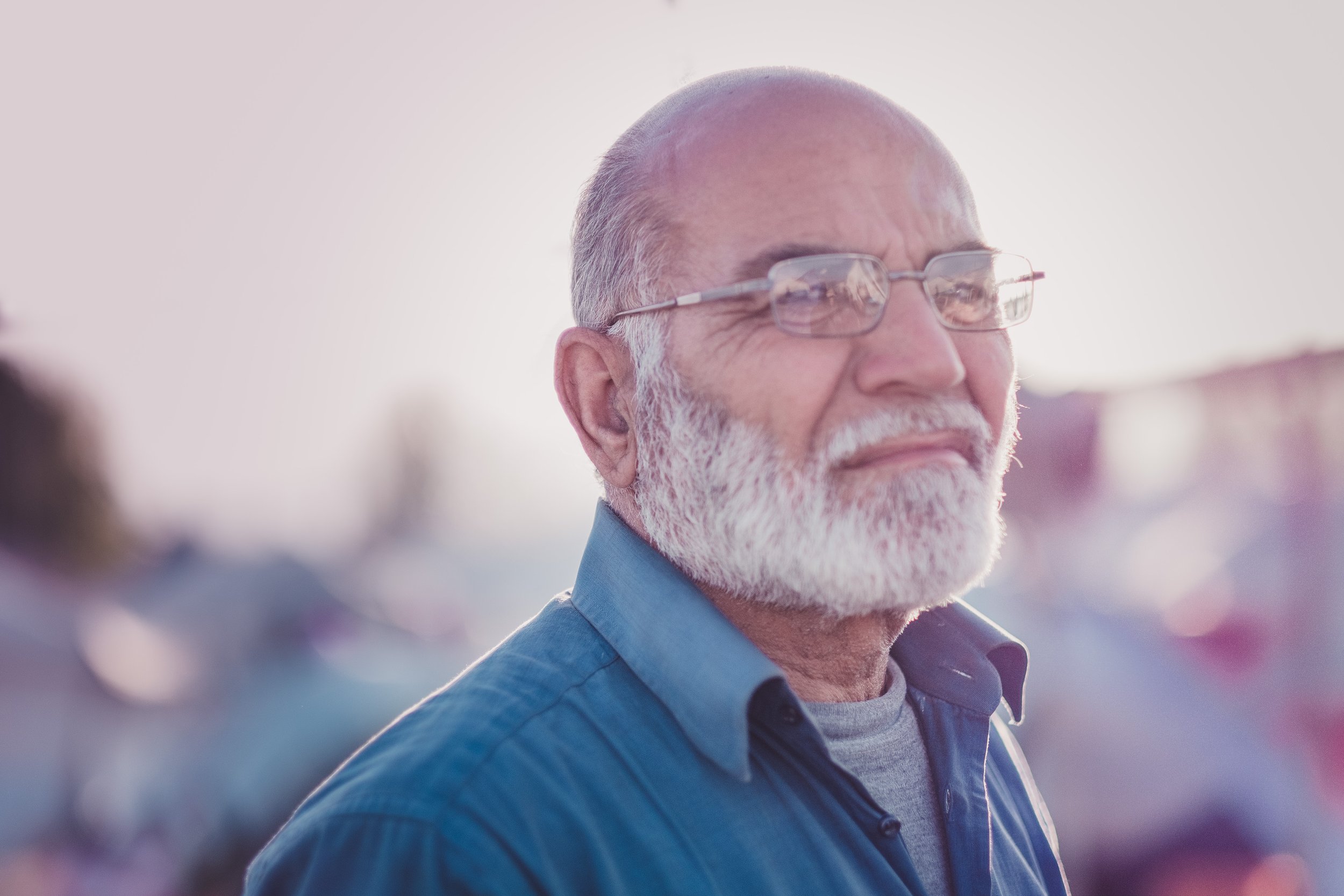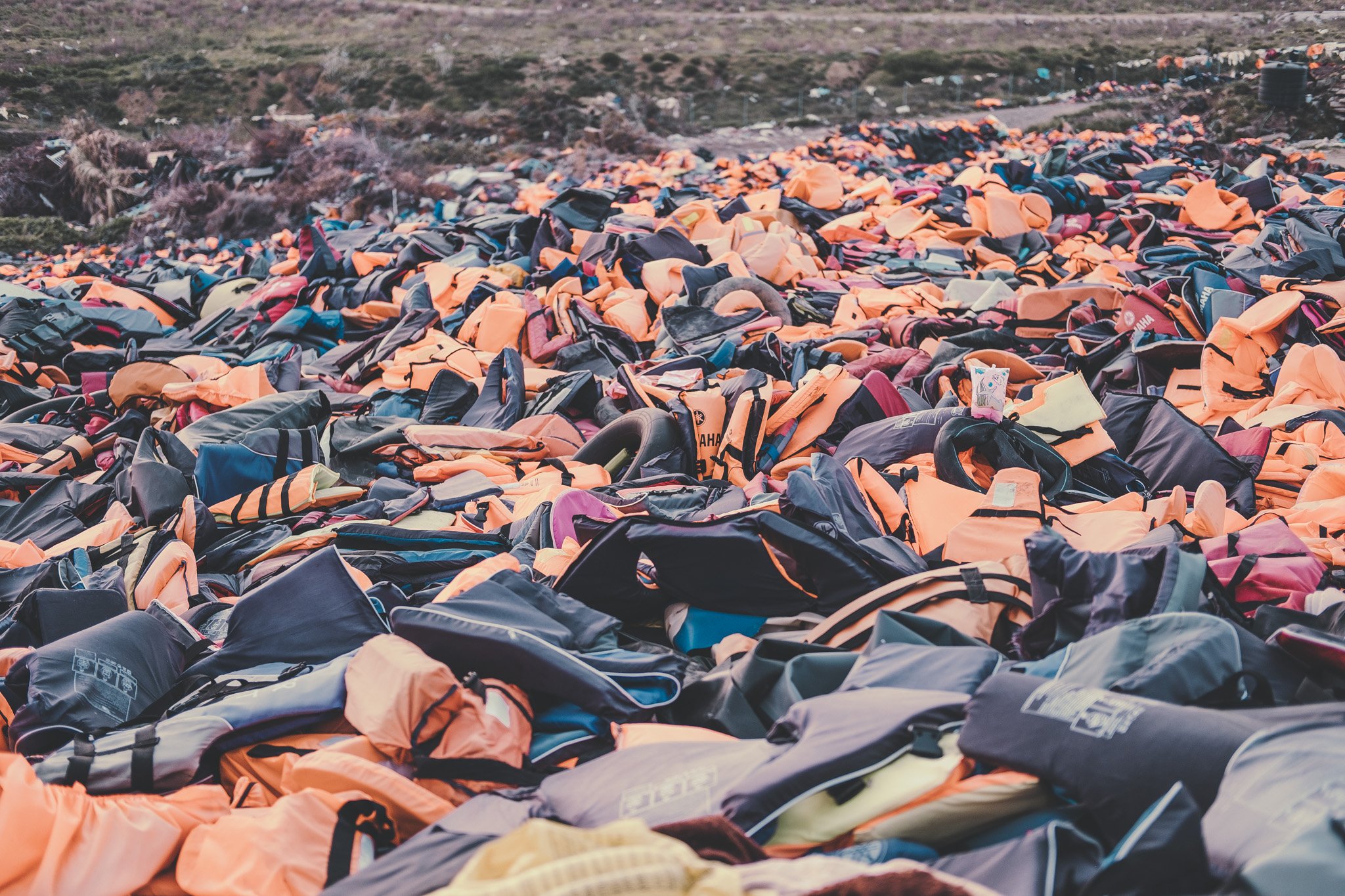Faceless, Forgotten
As war and conflict continue to ravage the Middle East, record numbers of refugees have been forced to flee their homes in search of safety. In the past few years alone, hundreds of thousands of people have made their way to the shores of Europe in search of protection. Increasingly used as political pawns, they have become the faceless, forgotten people whose individual stories have been lost along the way. These are some of their stories.
I have no idea what I expected when I first entered the makeshift refugee camp located twenty miles from the Greek border with North Macedonia; I am sure it wasn't a sign on a bathroom door declaring "Europeans Only". The sprawling camp had sprung up in just a matter of weeks following a series of sudden border closures, and the fields which surrounded this once sleepy petrol station was suddenly playing host to thousands of people in need of shelter. But, while it seems refugees were welcome to purchase as many cups of €5 coffee they liked from the petrol station cafe, the thought of those same refugees making use of the toilets was too much for the cafe owners to contemplate. Instead, they were directed to an indiscreet hedgerow behind the cafe where the constant stench of open-air toilets hung in the air.
This confusing mix of welcome and rejection, in equal measure, was to become an everyday occurrence for refugees arriving in Europe. Contrary to the aspersions of certain media outlets, which sought to paint refugees as freeloaders arriving in Europe to exploit the generosity of the west, most had paid every step of the way and were offended by the insinuation that they were simply in search of handouts. "In Syria, we had everything you have, and more," Abdulazez, an 18-year-old student who had fled the city of Homs in Syria with his family, told me. "We didn't choose to come here; we had to. We have paid everything we had to get here."
As dispiriting as it was to suffer the indignation of locals who criticised refugees for being there while at the same time profiting from their presence, at least Abdulazez and his family were able to move around freely while awaiting their asylum applications to be processed.
Many of those arriving to the small Greek island of Lesbos were less fortunate. Transported directly from the beach upon which they landed, after their perilous journey across the sea, tens of thousands of children and adults were being forcibly held in a facility originally intended for just 3000. Surrounded by barbed wire and armed police, the scene was more reminiscent of a high-security prison than a care facility for those in desperate need of assistance. With no electricity, no running water, and not enough shelter for all the inhabitants, the appalling conditions were cause for substantial concern for the NGOs working within the detention centre walls. "Life is extremely difficult for children in Moria," said Sasha Myers from Save The Children. "We are seeing increasing numbers of children getting sick and we have grave concerns for the mental health of the children being detained."
And yet, despite the incredible challenges many refugees faced in their journey to safety, the mundanity of everyday life still found a way to continue, even in refugee camps. One of the most squalid of all the camps I experienced in Europe was the ominously named "Jungle" on the outskirts of Calais, France. Kept deliberately drab and depressing by French Authorities, any effort by aid workers to instigate fun or educational activities within the camp was quickly put down, ensuring life in the Jungle was incredibly monotonous. And yet, people still made an effort to live their lives. Homes hobbled together from old wood and plastic bags were swept and kept clean, children played in the alleyways between shelters, old folk gossiped – life went on. As Joe Bergson from Care4Calais, an NGO providing support with the camp, told me, "people still want to make good of their lives, even in these difficult situations. They share, they laugh; they seek out the human connections which make life bearable, even somewhere like this."
The desire to live life was something I discovered in camps across Europe. When I first set out to meet the refugees of Europe, I thought I would be meeting extraordinary people but what I found were very ordinary people escaping exceptional circumstances. These were people who wanted the same from life as we all do: to raise their children free from the fear of bombs, to build a life of hope in a home they can call their own. To take charge of their destiny without being dependent on the charity of others. Reflecting upon my experiences within the refugee camps of Europe, I am reminded of a question Abdulazez put to me, as we chatted one evening, within the small area his family had claimed for their tents, "Imagine yourself in the same situation as us, what would you have done? Would you have stayed and waited for the bombs? Or would you have done exactly what we did, and run?"
It is a question I have asked myself often since I left the refugee camps of Europe. For me, the answer is clear; I would have run, just as these refugees had done. In many respects, even the term refugee is problematic. It suggests a single, homogeneous group, where in reality, the refugee community is made up of a hugely diverse range of people whose individuality has been lost in their haste to flee. Each has their own story, aspirations, and circumstances. In that respect, they are no different from most of us. It seemed the only difference between myself and the refugees I met was my good fortune to live in a county that wasn't suddenly plunged into war.
Perhaps it is a question we could all ask ourselves as we consider the plight of refugees searching for safety. What would any of us do if we found ourselves in the same situation? Really, are we so different after all?











